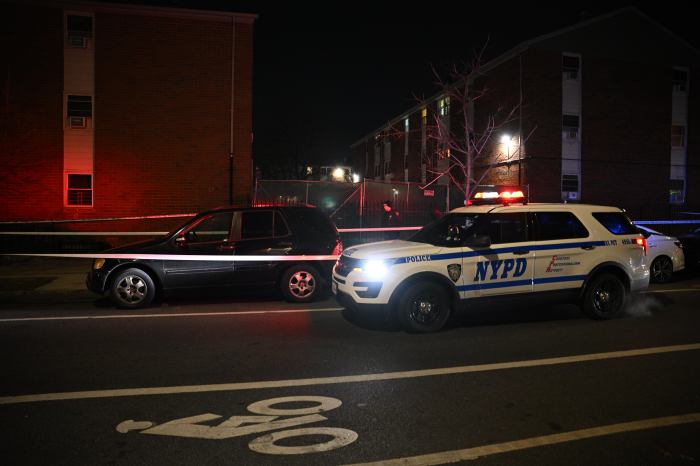An attorney who argued for the release of grand jury minutes in the Eric Garner case Tuesday said he wasn’t sure how the panel of four appeals court justices would rule. But the Staten Island assistant district attorney, meanhwile, warned that the release of information would only raise “more questions.”
A group of organizations — including the NYCLU and Legal Aid Society, as well as Public Advocate Letitia James, argued the minutes can help inform a public discussion over reforms to the grand jury process.
The appeal to the Appellate Division in Brooklyn came after a prior petition was denied by a Staten Island judge in March.
“I think you can’t really tell what the court will do based upon the questions they ask,” said Arthur Eisenberg, the legal director for the NYCLU, after the hearing Tuesday afternoon. “They tend to ask hard questions of both sides. And I’ve gotten out of the business of trying to predict judicial outcomes on the basis of oral arguments.”
Staten Island ADA Anne Grady said during her testimony that releasing the minutes would not inform any debate, adding it shouldn’t result in disclosure, “but in even more zealous protection.” Grady said anyone looking for a way to support their own agenda will surely find it in the voluminous records.
“Further disclosure will simply raise more questions,” Grady said. “[This case] really needs to stand for grand jury secrecy.”
Garner, 43, died July 17 after Officer Daniel Pantaleo held him in an apparent chokehold while trying to arrest him for selling loose cigarettes on Staten Island. A special grand jury convened by then-Staten Island District Attorney Daniel Donovan decided not to indict Pantaleo in December after nine weeks of deliberations.
Shortly after that decision, a judge released limited information about the grand jury, including that there were 50 witnesses and 60 exhibits presented.
James said the public advocate’s office has the authority to investigate all five of the city’s district attorneys.
In his appeal, Matthew Brinckerhoff, who represented James, requested the release of non-testimonial evidence, the charges that were presented, questions the grand jury asked and Pantaleo’s testimony.
“The compelling and particularized standard that we are seeking is to reassure confidence in the system and to really affect legislative change in Albany,” James said after the hearing. “All that we are seeking to do is to reform a system, which in my humble opinion, is broken. And to let everyone know that what happened behind closed doors obviously was a miscarriage of justice.”
James said she does not intend to reveal the witnesses’ identities
NYCLU executive director Donna Lieberman said New Yorkers need to know what went on in order to make informed decisions.
“The secrecy that is shielding the grand jury from any kind of disclosure or accountability with the public is simply heightening the suspicions that many New Yorkers have, both of the police department and of the grand jury system,” Lieberman said. “It’s time that we end the secrecy — that we put a little sunlight on the killing of Eric Garner, that we put a little sunlight on the grand jury system. And that the debate about what reforms we need in New York State to our grand jury system be allowed to continue with facts.”































